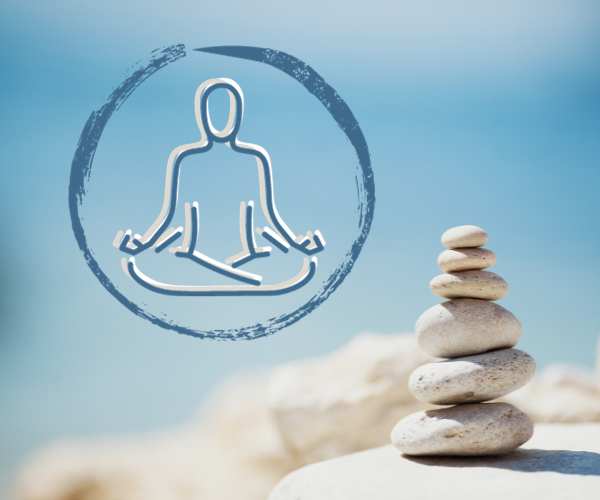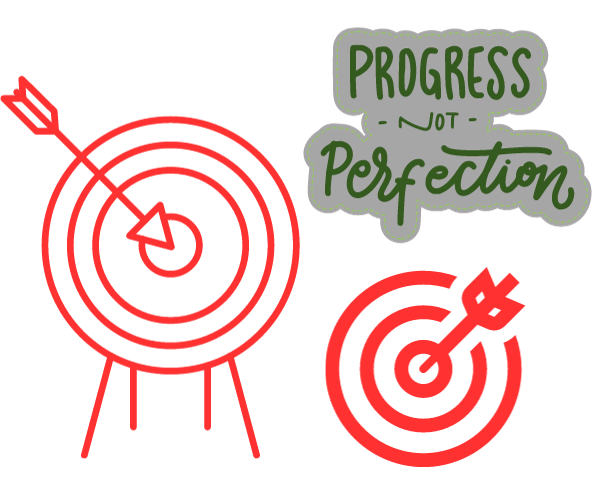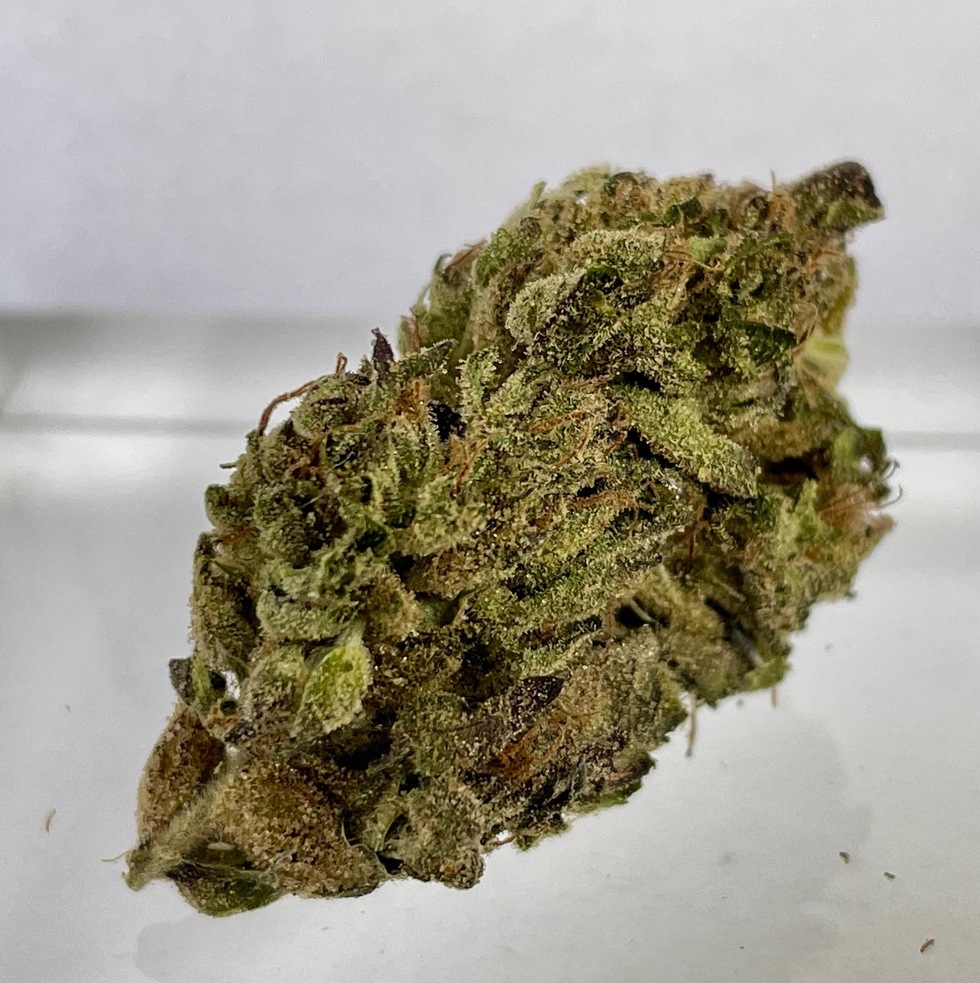We all have off days.
Sluggishness, lack of productivity, zero motivation – sound familiar? Especially around the holidays, those days seem all too common and frequent for some of us!
Those off days can make it hard to remember even the simple things, like where you left your car keys. It’s like a fog is permeating your thoughts, or your brain’s wandered off on its own accord.
So, how do you get the focus and attention back? And why does it happen in the first place?
The bright side is that you’re not alone – and there are solutions to those off days.
In our guide, we want to help you start tackling the things you’ve been putting off. Let’s dive into ways to supercharge your attention and focus.
What Causes Trouble for Attention and Focus?
Each person is unique, of course, but usually, issues with attention will fall into one of these categories. Some things that could be causing you to have focus problems include:
- Bedtime routine issues
- Not eating well
- Distracting electronics
- People interrupting you regularly
- Stress and burnout
- Lack of physical activity
While our list isn’t exhaustive, it may give you a general idea of where to start.
Some may be self-evident, such as people interrupting you while you are busy.
Others, like your eating habits or sleep routine, may not stand out immediately as the culprit.
Fortunately, there are steps you can take to start working back towards a supercharged attention span and better focus.
How to Supercharge Your Attention and Focus
There are several strategies one can use to get attention and focus back on track!
1. Minimize Sugar
Sugar offers a short-lived energy burst that feeds that feeling of focus – temporarily. On average, glucose levels begin to drop about 20 minutes after that sugary drink hits your stomach.
It helps to think of sugar as an accelerant instead of a fuel. For example, when you feed a fire with wood, it may take a while to get to a good burn. However, the fire will last. Meanwhile, if you’re only using starter fluid, the fire’s intense at first but burns up entirely in a shorter timeframe.
Once that initial blast of energy from sugar peters out, most people are often left feeling unfocused and easily distracted.
In short, if you have trouble focusing, it might be time to take a step back from sweets. Consider how often you’re indulging and what your daily food intake looks like. Try to nourish yourself with longer-lasting energy sources like oily fish or nuts.
2. Set a Routine
Chaos has a way of finding its way into everyday life.
It can range from something small, like misplaced items that lead to a mild inconvenience. It goes all the way up to not being able to complete even simple tasks due to multiple compounding issues.
The key is to manage this chaos – by setting a routine. Building a few healthy, consistent habits may help kick your attention and focus into overdrive.
Fortunately, you can do it on your own time and how you feel comfortable. Setting a routine can be a gradual event.
Start with something simple, like getting your morning started in a particular order. Once something gets established, start organizing the next step of your day.
Eventually, your mind will be able to focus on whatever task you have at hand more easily. The confusing hustle and bustle of the day gets better managed.
3. Exercise
Research shows that exercise helps stimulate the brain. The stimulation keeps blood flowing, helping your brain feel more refreshed and full of energy.
A stimulated brain can focus more easily and pay attention for longer. So, exercise may be a viable strategy to get your focus back where it needs to be.
Research also suggests regular exercise helps improve memory capacity as well as overall concentration.
Simple, short exercises each day can be a major key to getting your day back fully into your hands. It can be as quick as a brisk, 15-minute walk at any point in the day. That walk may be a major difference for you when it comes to being able to focus more easily!
4. Meditate
In our fast-paced world, it can be challenging to find moments of stillness, but those moments are essential regardless. Meditation is a powerful tool to achieve those moments more frequently, improving focus and attention along with it.
Mindful meditation, in particular, is a technique that involves focusing attention on the present moment. It allows you to calm your mind, reduce stress, and boost your ability to concentrate.
But how does one meditate – especially if they’ve never done it before?
 How to Meditate to Improve Attention and Focus
How to Meditate to Improve Attention and Focus
First, find a quiet space. Choose a comfortable, quiet spot where you won’t be easily distracted.
Ensure you set aside time for meditation. Start with just a few minutes each day. Gradually increase the duration as you become more comfortable with it.
Sit in a comfortable position, but keep your back straight. Alternatively, you can meditate lying down. However, sitting is often recommended to prevent falling asleep.
Focus on your breath. Close your eyes and pay attention to it. Feel the rise and fall of your chest and the sensation of your breath passing through your nostrils.
When your mind starts to wander, acknowledge these distractions. Gently bring your focus back to your breath.
Optionally, do a mental body scan from head to toe. Pay attention to any areas of tension or discomfort. Try to breathe in and out as you relax these areas further, dissipating the discomfort or tension.
Meditation can help train your brain to remain more present, reduce stress and anxiety, and enhance your overall attention span. As little as 10 to 15 minutes of daily meditation can make a significant difference in your ability to focus.
It’s also a skill that takes practice, though. Be patient with yourself and with the results as you develop this powerful tool to supercharge your attention and focus.
5. Eliminate Distractions
A major but often overlooked hurdle to attention and focus may be the presence of minor distractions. These can range from a constant barrage of phone notifications to music or a TV show blaring in the background.
No matter the distraction, it can significantly hinder your ability to concentrate. The impact of these diversions may not be immediately apparent. However, they can fracture our attention, making it challenging to stay on track. It might be time to take control of your environment if you struggle with focus lately.
Consider relocating your phone to a separate room when you need to focus. If needed for emergencies, keep it out of sight in a pocket or even a drawer. A simple action like this can prevent the allure of constant phone notifications.
Likewise, reduce noise-related distractions. Lower the volume of background music or mute the TV when it’s time to buckle down and focus. Opt for a quieter, more peaceful atmosphere that encourages deep concentration.
By proactively managing these environmental distractions, you’ll find it easier to maintain your attention. You might engage in tasks with a renewed sense of focus and productivity.
6. Nourish Your Brain
What goes into your body is just as important as what you’re doing with it. Outside of taking care of your physical presence with exercise, it’s also important to be mindful of what you’re eating.
The foods you consume play a significant role in your cognitive abilities, including concentration and memory. To improve your brain’s ability to focus, avoid things like heavily processed foods and super greasy options.
Instead of reaching for premade snacks or easy options like fast food, try substituting options that boost your brain. Foods like eggs, fish, and spinach all give your body and brain nutrient-dense fuel to boost their functions.
For sweeter options, examples like blueberries and grapes give you a burst of sweetness without overloading your system with sugar.
And staying hydrated is just as important. It might not be noticeable immediately, but even mild dehydration can have a major impact on your ability to focus.
You might also explore supplements to enhance brain function further. Some products, like hemp, may help you stay alert and fuel your day. In fact, some of our hemp products can especially help with focus and energy, recharging you through the day.
7. Take Short Breaks
There is one factor that can sneak up on you without warning and absolutely obliterate your ability to focus, and that factor is called burnout. What is burnout? Burnout is the complete physical, emotional, and mental exhaustion someone experiences when the body has used up its resources.
Burnout can happen from work, sports, reading, or just about anything if you do it long enough. The effects can manifest as being unable to focus or even care about what it is you are trying to focus on.
One way to help mitigate this effect is to take short breaks. These breaks can refresh your mind and feelings about a task and let you recharge before tackling it again. Letting your brain disengage with a given task allows you to approach it with a fresh perspective once you return to it, giving you the ability to stay locked on.
8. Remember – Practice Makes Perfect
Improving mental focus and developing a better attention span is not something that happens overnight. Even people in professional settings that require keen focus continuously work to improve themselves.
Outside of just practicing the above suggestions, you can even add fun activities to help train your brain. Some beneficial activities include:
- Jigsaw Puzzles
- Word Searches
- Memory-based games
- Chess
- Crossword puzzles
- Sudoku
Keep consistently building up that mental focus. Over time, you’ll find it easier to concentrate and feel more capable of accomplishing your goals.
By following these steps, get more done with fewer distractions. Give it time and patience, and use a combination of these tips to supercharge your attention and focus truly.
Benefits of Improving Attention and Focus
While it’s important to understand that you need good focus and a strong attention span, it is also important to understand how you benefit from it. The benefits of having stable focus and attention are more than just how much work you can get done; it also encompasses basic life improvement.
Let’s go over some of the benefits that you can build alongside the skills of focus and attention.
- Peace of mind
- Better memory
- Decisiveness
- Stronger creative visualization
- Improved self-confidence
- Stronger willpower
These examples are a few of the potential benefits you could notice from improving your focus and attention span. Think of them as bonuses that you can utilize in everyday situations on top of your work life!
Wrapping Up on Attention and Focus
In our quest to help you supercharge your attention and focus, we’ve explored various strategies to help you regain control. From minimizing distractions to nourishing your brain, these tips are building blocks for a more focused, productive, and peaceful life.
It’s important to recognize improving focus and attention is an ongoing journey. It requires dedication and patience, but be kind to yourself! Even the most accomplished professionals continually work on honing their focus.
Consider incorporating enjoyable brain-training activities like puzzles, word searches, and memory-based games into your routine. Likewise, mull over which hemp product you want to try first. Together, watch as a combination of these strategies helps elevate your overall quality of life.
Sources
- https://www.ncbi.nlm.nih.gov/pmc/articles/PMC6193136/
- https://healthysd.gov/brain-foods-that-may-help-you-concentrate/
- https://www.ncbi.nlm.nih.gov/pmc/articles/PMC6378489/
- https://www.ncbi.nlm.nih.gov/pmc/articles/PMC6770965/
- https://www.ncbi.nlm.nih.gov/pmc/articles/PMC5934999/
- https://www.ncbi.nlm.nih.gov/pmc/articles/PMC6088366/
- https://www.ncbi.nlm.nih.gov/pmc/articles/PMC9099589/
- https://www.ncbi.nlm.nih.gov/pmc/articles/PMC4114291/
- https://www.ncbi.nlm.nih.gov/pmc/articles/PMC7027431/
- https://www.nih.gov/news-events/news-releases/study-shows-how-taking-short-breaks-may-help-our-brains-learn-new-skills
- https://www.ncbi.nlm.nih.gov/pmc/articles/PMC9432722/
- https://pubmed.ncbi.nlm.nih.gov/26333022/




